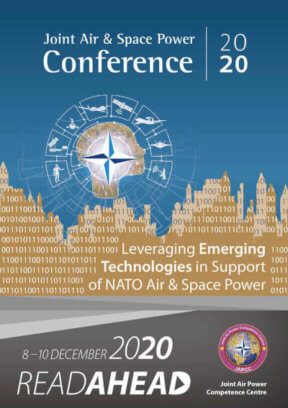Safety and security have always played an essential role in Poland’s state strategy and policy. Although the activities related to Space Situational Awareness (SSA) have been present in Poland from the beginning of the space era, they had been practically constrained to Research and Development (R&D) only. The idea of building-up SSA operational capabilities at the European level has received firm national support from its beginning. Poland, as a European Union Member, has not only advocated for the European Space Surveillance and Tracking programme but also joined it in 20181. The transition from R&D to the operational domain was, and is, a tedious process. In particular it was linked with creation of the Polish Space Agency (POLSA)2, declaration of the National Space Strategy (2016), and the creation of POLSA’s SSA dedicated structure (2017)3 together with the National SSA Operational Centre4.
The activities of POLSA were (under the act from 2014) under the auspices of the President of the Council of Ministers. As of these writings, due to modification and update of the procederes, the Agency is under auspices of the Ministry of Development. The POLSA Council consists of representatives of the government, one from each administration and four representatives of scientists and industry with recognized achievements in research or business who are chosen based on their knowledge competence in areas concerning POLSA activities. One of the main areas of POLSA activities is international cooperation. POLSA is committed to multilateral cooperation in the framework of the European Space Agency (ESA) and the European Union (EU). POLSA supports especially Polish actors who apply to the space programs. They have already started efforts to integrate the national industrial sector in projects implemented by the European Organization for the Exploitation of Meteorological Satellites (EUMETSAT). POLSA also provides active bilateral cooperation with ESA Member States, the EU and other countries, primarily in the field of space exploration.
POLSA supports the Polish space sector and facilitates exchanges, by organizing competitions for advisory services. The entities receive professional support in the form of consultation with experts. Entrepreneurial subject matter experts (SME) receive support in applying to competitions organized by the European Space Agency. POLSA activities aim at contributing to the growth of innovation and competitiveness of Polish companies in the space sector. POLSA encourages the involvement of high-tech or Information Technology (IT) operators in the space industry, and it also promotes solutions supporting the Polish state administration at central and local government levels. These result in enhanced efficiency of the administrative work by using everyday services based on satellite data and satellite technology, including earth observation, navigation and telecommunications. With regard to R&D, POLSA supports the Polish scientific institutions and companies who are active in R&D in the field of fundraising for scientific and industrial research. POLSA assists in conducting work on space applications and space technology development.
In addition, POLSA carries out educational activities in the field of popularization of knowledge of space research at secondary education and high school in Poland. It covers the subject of space engineering and astronomy, as well as initiates and supports with its expertise the creation of new courses of higher education. Last but not least, one of the main priority tasks of the Polish Space Agency is to provide security for Poland and its citizens by increasing Polish defence capabilities through the use of satellite systems. To this direction, the Polish Space agency aims to ensure the security of the state and its citizens and to contribute to the Polish defence potential through the use of satellite systems. Therefore, an important area of the agency’s activity is the coordination of activities aimed at the effective use of space technologies and satellite applications for defence purposes.
The tasks resulting from the above-mentioned priorities are carried out by the Vice President’s Division for Defense Affairs. The Division consists of the Department of Military Satellite Technologies and the Department of Defense Projects. The Military Satellite Technologies Department consists of the earth and space satellite recognition team, the satellite navigation team, and the satellite communications team.
Starting from 2019, Poland, as a full member of the European Union Space Surveillance & Tracking (SST) Consortium, shares benefits from services at the national level and especially adapts nationally to the possible future contribution. That is why, to both stimulate and secure economic growth and to protect European citizens, there is a strong need for continuous dialogue to better shape the boundaries of a more comprehensive future SSA programme. Joining the SST Consortium will allow for the enhancement of national capabilities related to observation and awareness-building in space, increase the national space sector competences and their role in current and future programmes of the European Union and ESA, as well as strengthen Poland’s position in the international arena. Therefore, the establishment, development, and exploitation of the national system of situational awareness in space has been included as one of the five large projects in the National Space Programme for the years 2019–20215. In this context, the SSA area in Poland will be addressed across the board, covering structural, legal, operational, and R&D issues. In particular, it will present the environment in which POLSA operates in the context of the European Union, ESA, other states in Europe and entities currently engaged in activities in the field of ESA, as well as the results of research work. International cooperation including Polish Allies, and international organizations in civil and military domain, in space security domain is extremely important.6











